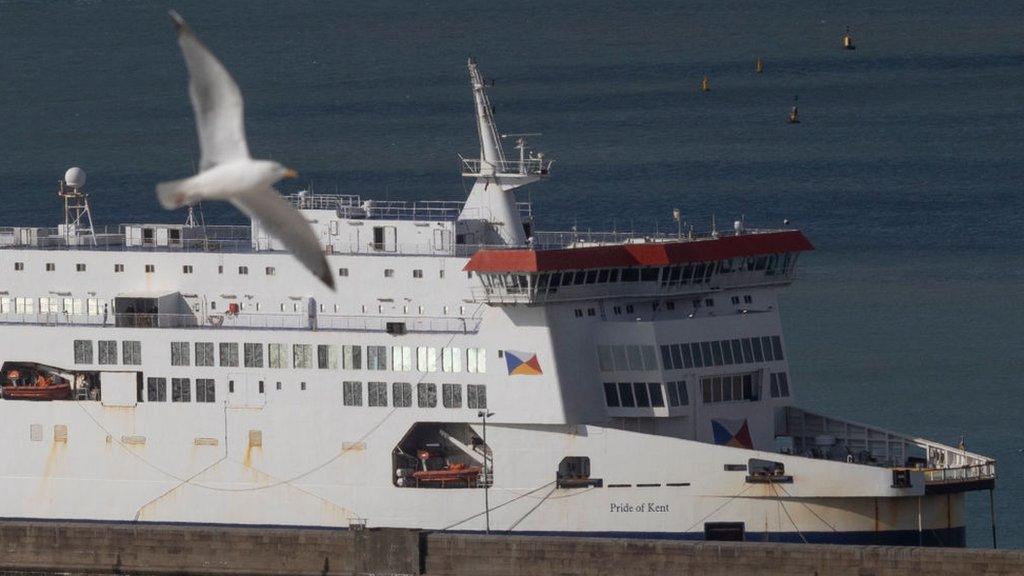Operation Brock: M20 traffic controls scaled back ahead of Easter
- Published
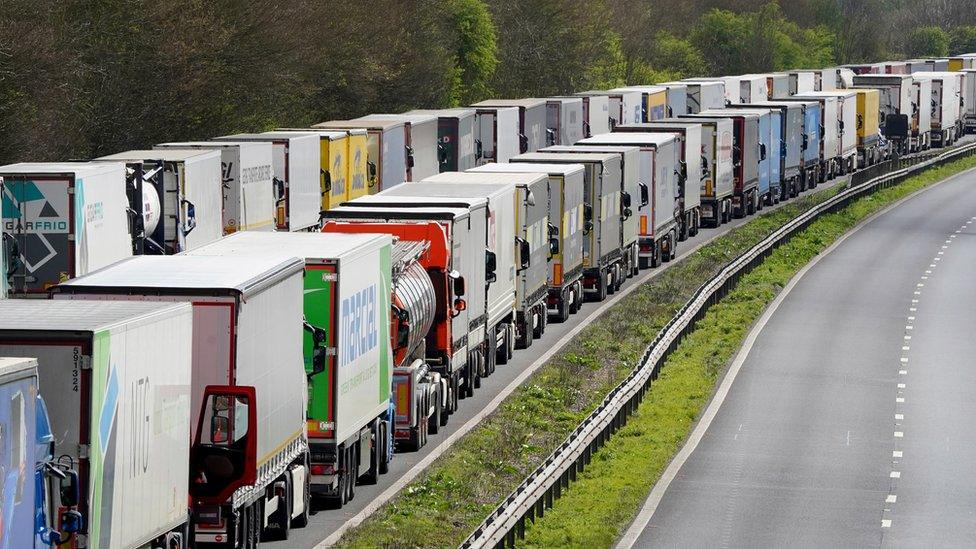
Junctions 10a and 11 on the coastbound M20 in Kent reopened on Friday
About 1,500 lorries are still queuing for the Port of Dover as the holding system for lorries heading to cross-Channel ports is scaled back.
National Highways said the threat of disruption to services has reduced,
Operation Brock, where lorries heading to Dover queue on one side of the M20, was put in place last week.
It was brought in to deal with heavy congestion exacerbated by P&O Ferries routes being suspended.
Ferry firm DFDS has warned passengers are waiting for about two hours to get through border controls at Dover.
The Port of Dover says some of the delays for ferry passengers are due to a lack of staff at French passport control.
Junctions 10a and 11 on the coastbound M20 reopened on Friday. with the section between Junctions 8 and 9 now also open to all traffic on the London-bound carriageway.
Nicky Potts of National Highways said: "Scaling it back now is a sensible response to the changing outlook and restores capacity on the motorway in time for the weekend."
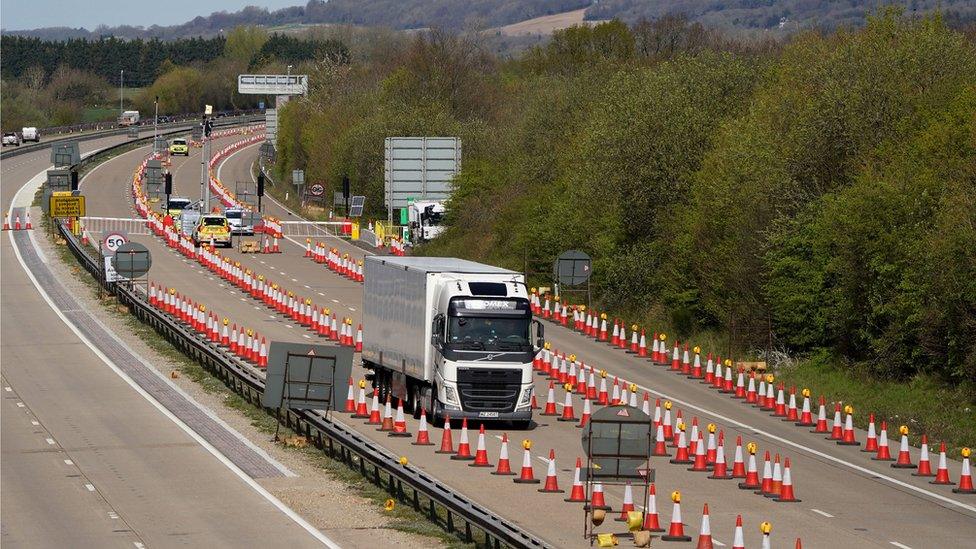
A view of lorries using Operation Brock on the M20 near Ashford in Kent
Several factors have caused delays at Kent ports in the past few weeks.
Bad weather, Easter holidays and P&O Ferries routes being suspended have all led to congestion around Dover, triggering Operation Brock.
There have also been problems with an IT system for custom checks at the UK's busiest port following Brexit.
The Kent Resilience Forum previously told the BBC the problems had created a "perfect storm", with traffic disruption around Dover the worst it has been since 2020.
The Dover Traffic Access Protocol (TAP) scheme, which queues port-bound lorries on the nearside of the A20 outside the town, was also implemented due to heavy lorry volumes.
Operation Brock normally has the capacity for about 2,000 lorries, but it had been holding up to 4,000, according to the forum, which manages emergency planning for the county.
Usually under Brock, lorries queue between junctions eight and nine of the M20 southbound, with the northbound carriageway operating as a contraflow.
This was extended to junction 11 to deal with the extra congestion.
The transport industry body Logistics UK raised concerns over drivers being stuck in queues without access to toilets, washing facilities, food and water under Operation Brock and called for it to be reviewed "urgently".
The Kent Resilience Forum had said it was not possible to provide toilet facilities due to safety reasons.
Food and water had been provided to drivers, it added.

Follow BBC South East on Facebook, external, on Twitter, external, and on Instagram, external. Send your story ideas to southeasttoday@bbc.co.uk.
- Published13 April 2022
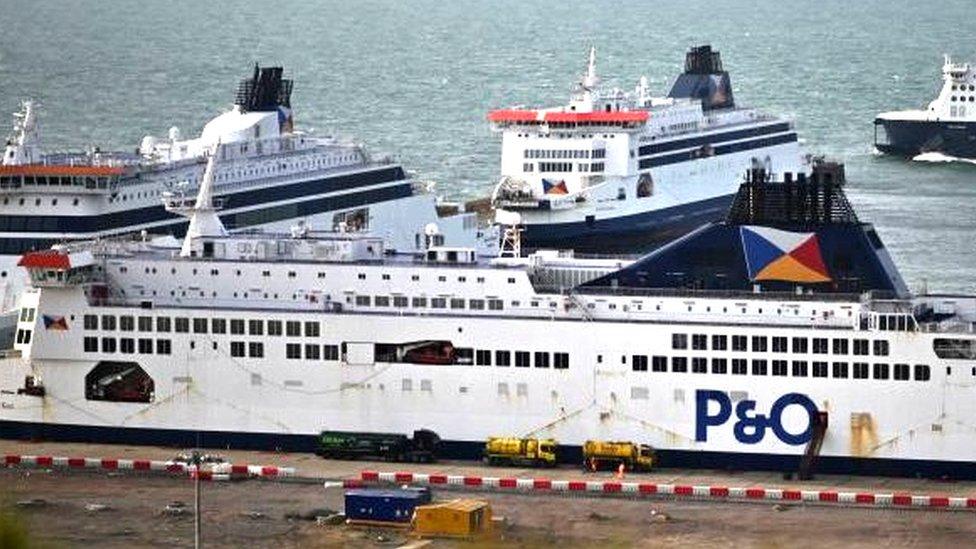
- Published12 April 2022
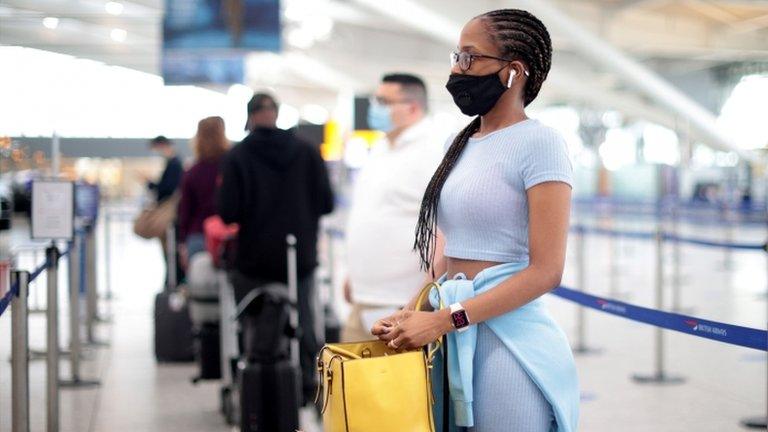
- Published10 April 2022
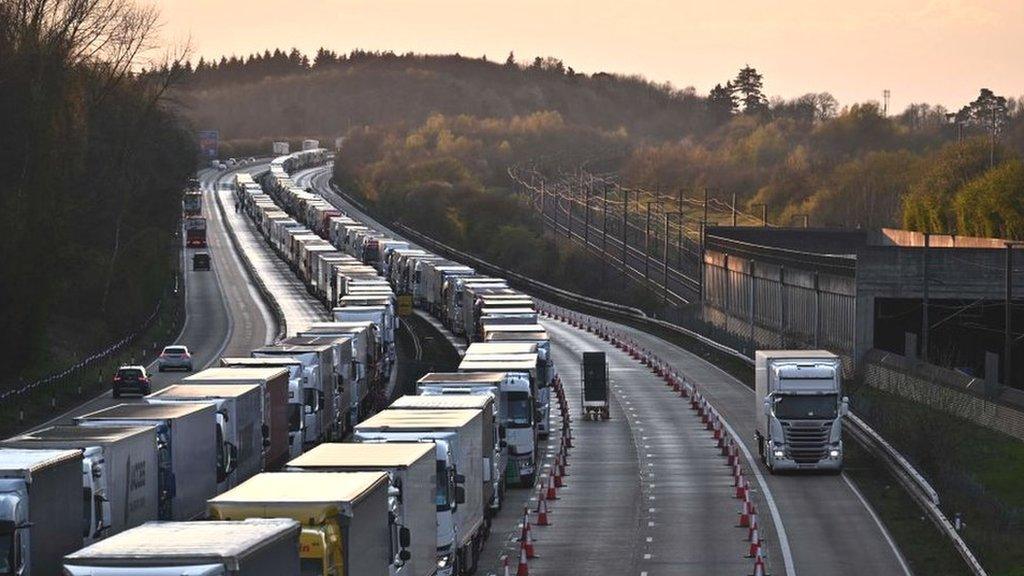
- Published8 April 2022
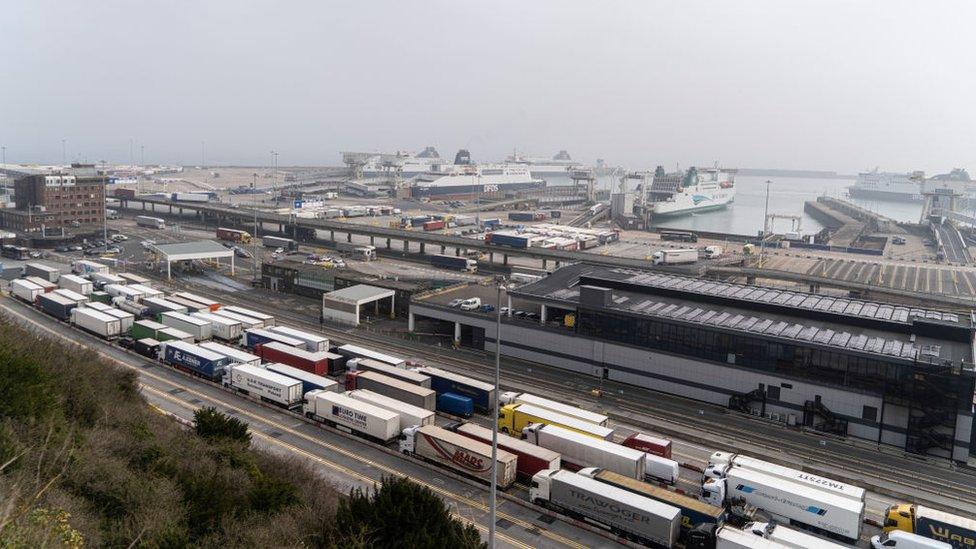
- Published6 April 2022
